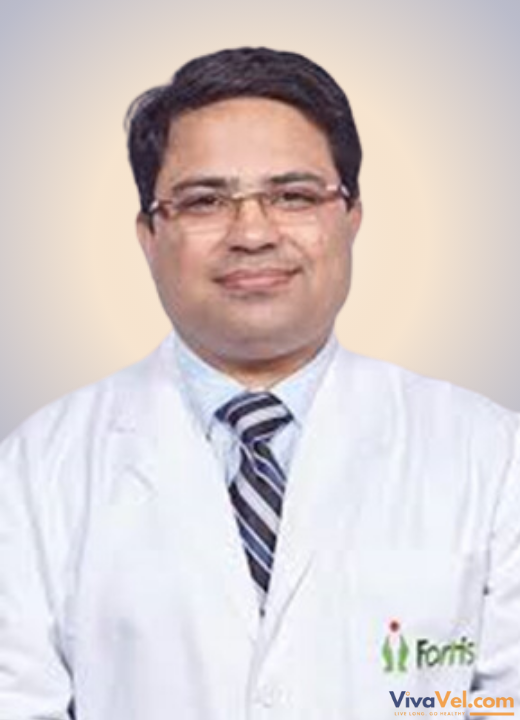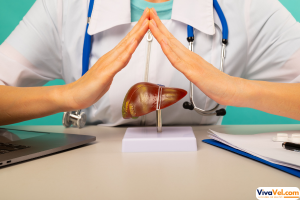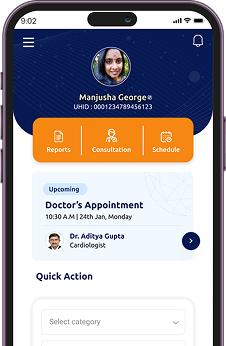About Liver Transplant
Our liver transplant package is designed to provide international patients with world-class medical care, cutting-edge technology, and personalized services in a patient-friendly environment. We collaborate with leading hospitals and experienced transplant surgeons to ensure the best possible outcomes for our patients.

Fortis Escorts Heart Institute
Okhla road, Sukhdev Vihar Metro Station New Delhi, 110025
1988
310
Multi Specialty
Address & Nearby Location

Airport (Indira Gandhi International Airport).
Distance: 16 KM | Duration: 25-30 mins by car.

Railway Station (Hazrat Nizamuddin Railway Station).
Distance: 5 KM | Duration: 15-20 mins by car.
 Metro (Sukhdev Vihar Metro Station (Magenta Line):
Metro (Sukhdev Vihar Metro Station (Magenta Line):
Distance: 2 KM | Duration: 5-10 mins by car or 20 mins walk.
Taxi: Available on-call.
About Doctor

Dr. Vivek Vij
Chairman
Gastroenterology And Hepatobiliary Sciences | GI, Minimal Access And Bariatric Surgery | Liver Transplant | Me...
15 Years Experience | 0 Surgeries & Procedures
Fortis Escorts Heart Institute
Dr. Vivek Vij is an accomplished liver transplant surgeon credited with developing living donor surgery and implementing safety protocols to achieve a 100% donor safety profile since its inception in the country. He is recognized as the first surgeon from the Indian subcontinent to publish a series of laparoscopic Donor Hepatectomy in 'Liver Transplantation.' Dr. Vij ...
-
Fortis Escorts Heart Institute (FEHI) is part of the Fortis group. Established in 1988, it is known for its clinical excellence in cardiac care worldwide.
-
The institute has received several quality awards and accreditations, including NABH Accreditation for the hospital in 2008 and NABL for Laboratory Services in 2013.
-
It is a multi-disciplinary hospital providing tertiary care, mainly known for its work in Cardiac Sciences.
-
Fortis Escorts Heart Institute has received numerous accolades for excellence in patient care and medical innovation.
Some of the awards received include:
-
Best Hospital in Cardiology by Times Healthcare Achievers Awards,
-
Excellence in Healthcare by AHPI,
-
Best Hospital in Cardiology by ICICI Lombard & CNBC TV 18 Healthcare Awards,
-
Excellence in Cardiac Care by ABP Healthcare Leadership,
-
Best Cardiology Hospital by ET Healthcare Awards,
-
Gold Award in Healthcare Delivery Brand,
-
Best Hospital in Cardiology Specialty by The Week Magazine in India,
-
Best Private Cardiac Hospital in India by The Week magazine (2014),
-
Best Comprehensive Cardiac Care Service Provider in India by Frost & Sullivan (2014),
-
Best Institution Award by Delhi Medical Association (2013),
-
Leading Heart Care Centre in North India at the Global Healthcare Excellence Awards 2013 and Finest Single Specialty Hospital – Cardiology at India Healthcare Awards 2012.
-
The institute is known for its pioneering work in conducting procedures such as Transcatheter Aortic Valve Implantation (TAVI) and bioresorbable vascular scaffold (BVS) and for being the first in India to start Percutaneous Transcatheter Replacement of Aortic Valve.
-
Additionally, the facility conducted Asia Pacific’s first Directional Atherectomy, Angioscopy, and Drug-Eluting Stenting.
-
Fortis Escorts Heart Institute also set a Guinness World Record for organizing the largest-ever initiative to test cholesterol levels in the NCR region to combat heart disease.
-
The facility embodies state-of-the-art infrastructure and houses approximately 310 beds, including 159 critical care beds, to deliver comprehensive patient care.
-
It has 13 advanced operation theatres tailored for complex surgical procedures.
-
5 Cath Labs are also readily available for various interventional cardiology procedures and advanced diagnostic testing.
-
The facility is supported by 3 Heart Command Centers, offering dedicated support for cardiac emergencies and patient management, and 2 Heart Stations for continuous cardiac monitoring and care.
-
Notably, it features a cutting-edge digital flat-panel CATH lab for high-quality imaging and diagnostic procedures, as well as a Dual CT-Scan, which includes a 256-slice CT scan and MRI (3.0 Tesla) with high-intensity focused ultrasound, providing advanced imaging capabilities for detailed diagnostics.
-
Advanced cardiac imaging and evaluation are facilitated by a Dual-head 6-slice SPECT scan, 3D Echocardiography with Colour Doppler, and transesophageal echocardiography (TEE) for detailed heart imaging through the esophagus.
-
Moreover, the establishment supports robotic surgery centers for spine, heart, urology, and bariatric surgeries, offering minimally invasive surgical options.
-
It has a groundbreaking eICU program, which enables remote and timely access to critical care through advanced technology. Furthermore, the facility is backed by the most advanced laboratories, which conduct a complete range of investigative tests, including Nuclear Medicine, Radiology, Biochemistry, Hematology, Transfusion Medicine, and Microbiology.
-
The facility specializes in Intensive Electronic Medical Records with audio-visuals and a Smart Alert System for 24x7x365 monitoring, assessment, support, and interventional services.
- Room Rent
- Cost of Surgery
- Consultations by the treating team
- Basic Investigations
- Routine Pharmacy and Consumables and Blood Products
- Patient and Attendant’s Food
- Stay beyond the number of days included in the package.
- Any additional Surgery/procedure that may be required.
- Consultation by a doctor of an unrelated specialty.
- Any special equipment that might be needed.
- Personal Protection Equipment for Doctors and Healthcare Workers.
- Any medicines/tests needed after discharge from the hospital.
Outside Hospital - Stay and Expenses
After discharge from the hospital, the patient will most likely be required to stay for 2-3 months near hospital for
follow-ups and recuperation.
He can choose to stay in guest houses/hotels/furnished apartments. The costs of these are usually $30/$50-75 per
day. An apartment typically will cost USD 700-1000 pm. He can also choose to stay in a near-by 5-star hotel which
costs USD 150-200 per night.
Additionally, patient may budget for USD 50/per person for daily expenses like food, local transport and tele-
communication. For local transport, he can use Uber/Ola/private taxis, which are easily available.
Returning Back
Hospital will make arrangements for dropping the patient off at the airport from his place of residence in New Delhi.
Day 1: Arrival in India
-
Meet and greet at the airport by a hospital representative.
-
Transfer to hospital or pre-arranged accommodation.
-
Check-in and rest.
Day 2: Pre-Transplant Evaluation
-
Initial consultation with the transplant team.
-
Comprehensive medical assessment and diagnostic tests.
-
Detailed discussion on procedure, risks, and expected outcomes.
Day 3-5: Pre-Surgical Preparation
-
Additional tests and consultations as needed.
-
Medication adjustments and pre-operative counseling.
-
Discussions with dietitians and physiotherapists for pre and post-surgical care.
Day 6: Surgery Day
-
Admission to the hospital.
-
Final pre-operative checks.
-
Expert surgeons perform liver transplant surgery.
Day 7-14: Post-Operative Recovery in Hospital
-
ICU monitoring and gradual recovery.
-
Continuous medical evaluation and pain management.
-
Physiotherapy and dietary support.
Day 15-30: Post-Discharge Recovery
-
Discharge from the hospital and transfer to nearby accommodation.
-
Regular follow-up visits to monitor progress.
-
Medication management and lifestyle adjustments.
-
Assistance with rehabilitation and counseling.
2-3 Months: Recuperation and Follow-ups
-
Ongoing medical consultations and tests.
-
Dietary and physical rehabilitation sessions.
-
Monitoring for rejection or complications.
-
Support for patients and attendants throughout the stay.
Returning Home
-
Final consultation with the treating team.
-
Clearance for travel.
-
Hospital-arranged transfer to the airport.
-
Post-return follow-up plan and teleconsultation support.
Additional Services:
-
Assistance with accommodation (guest houses, apartments, or hotels).
-
Local transportation arrangements.
-
Language and translation support.
-
Assistance with visa and medical documentation.
A liver transplant is a surgical procedure in which a damaged or diseased liver is replaced with a healthy liver from a donor. This surgery becomes necessary when the liver is not functioning properly and cannot heal on its own. The liver is a vital organ that filters harmful substances from the blood, produces bile to aid digestion, and stores energy.
A liver transplant is usually recommended when someone has liver failure. This means the liver can no longer do its job well enough to keep the body healthy.
Liver failure can happen because of:
- Chronic liver diseases, like cirrhosis (scarring of the liver), are often caused by long-term infections (hepatitis B or C) or excessive alcohol use.
- Acute liver failure can happen quickly due to drug overdoses (like taking too much acetaminophen) or poisoning.
- Genetic disorders, where people are born with conditions that damage the liver, like Wilson's disease.
 Liver failure happens when the liver is severely damaged and can't function properly. Some common signs and symptoms include:
Liver failure happens when the liver is severely damaged and can't function properly. Some common signs and symptoms include:
- Jaundice: Yellowing of the skin and eyes
- Abdominal pain and swelling
- Fatigue and weakness
- Nausea and vomiting
- Loss of appetite
- Confusion or difficulty thinking clearly
- Dark urine and pale stool.
 Liver failure can result from several conditions, including:
Liver failure can result from several conditions, including:
- Chronic Liver Diseases: Like cirrhosis (scarring of the liver), often caused by:
- Chronic hepatitis B or C infections
- Alcohol abuse
- Acute Liver Failure: Rapid liver failure caused by:
- Drug overdose (e.g., acetaminophen)
- Infections
- Toxins
- Inherited Diseases, like Wilson's disease or hemochromatosis
- Autoimmune Diseases, where the immune system attacks the liver
- Non-Alcoholic Fatty Liver Disease (NAFLD).
 If you experience symptoms like jaundice, severe fatigue, confusion, or swelling in the abdomen or legs, seek medical help immediately. These signs indicate that the liver may not be functioning well.
If you experience symptoms like jaundice, severe fatigue, confusion, or swelling in the abdomen or legs, seek medical help immediately. These signs indicate that the liver may not be functioning well.
 Several factors increase the risk of needing a liver transplant:
Several factors increase the risk of needing a liver transplant:
- Chronic alcohol use,
- Chronic viral hepatitis (B or C),
- Obesity (increases the risk of fatty liver disease),
- Diabetes (linked with non-alcoholic fatty liver disease),
- Exposure to toxins or certain medications.
 Doctors perform various tests to evaluate liver function and determine if a transplant is necessary:
Doctors perform various tests to evaluate liver function and determine if a transplant is necessary:
- Blood Tests: To check liver enzymes, bilirubin levels, and other indicators of liver health.
- Imaging Tests: include ultrasound, CT scan, or MRI to see liver damage or abnormalities.
- Liver Biopsy: A small piece of liver tissue is examined under a microscope.
- Endoscopy: A flexible tube with a camera is used to look for bleeding in the digestive tract, a complication of liver failure.
 Pre-Surgery: Once it's decided that a transplant is needed, the patient is placed on a waiting list for a donor's liver. Sometimes, a liver can come from a living donor (someone donates part of their liver).
Pre-Surgery: Once it's decided that a transplant is needed, the patient is placed on a waiting list for a donor's liver. Sometimes, a liver can come from a living donor (someone donates part of their liver).
 Surgery: The damaged liver is removed, and the donor liver is placed in its place. Blood vessels and bile ducts are connected.
Surgery: The damaged liver is removed, and the donor liver is placed in its place. Blood vessels and bile ducts are connected.
 Post-Surgery: The patient stays in the hospital for recovery. They are closely monitored for signs of rejection (where the body attacks the new liver) or infection.
Post-Surgery: The patient stays in the hospital for recovery. They are closely monitored for signs of rejection (where the body attacks the new liver) or infection.
Immunosuppressive Medications: To prevent the body from rejecting the new liver.
 Regular Check-ups: Patients need lifelong medical follow-up to ensure the liver functions well.
Regular Check-ups: Patients need lifelong medical follow-up to ensure the liver functions well.
 Healthy Lifestyle: Eating a balanced diet, exercising, and avoiding alcohol are crucial for maintaining the liver's health.
Healthy Lifestyle: Eating a balanced diet, exercising, and avoiding alcohol are crucial for maintaining the liver's health.
 Do's:
Do's:
- Take prescribed medications regularly, especially immunosuppressants.
- Attend regular follow-ups, such as blood tests and doctor visits.
- Eat a healthy diet: Focus on lean proteins, whole grains, and vegetables.
- Stay active: Gentle exercise helps improve overall health.
- Practice hygiene: Wash hands regularly to avoid infections.
 Don'ts:
Don'ts:
- Don't drink alcohol: It can damage the new liver.
- Avoid smoking or using drugs: They increase the risk of complications.
- Don't skip medications: This can lead to rejection of the new liver.
- Avoid raw or undercooked foods: To prevent infections, which can be severe post-surgery.

















